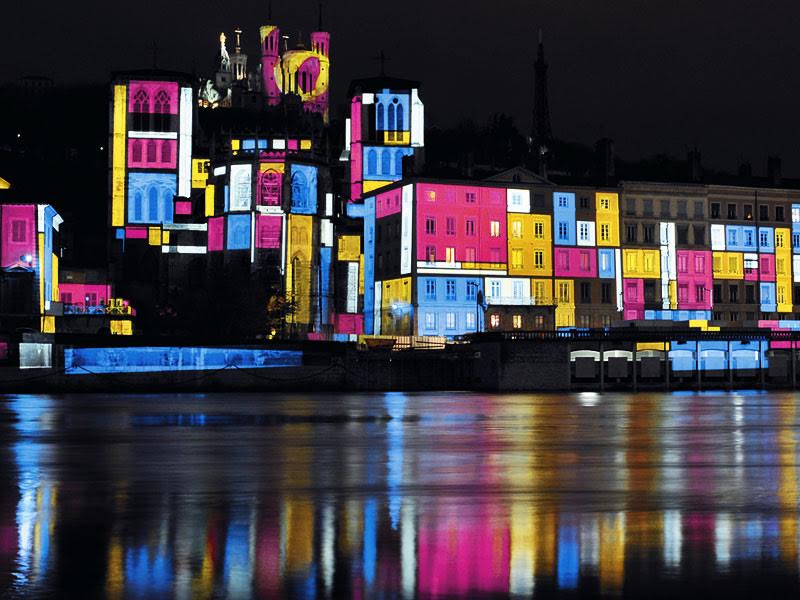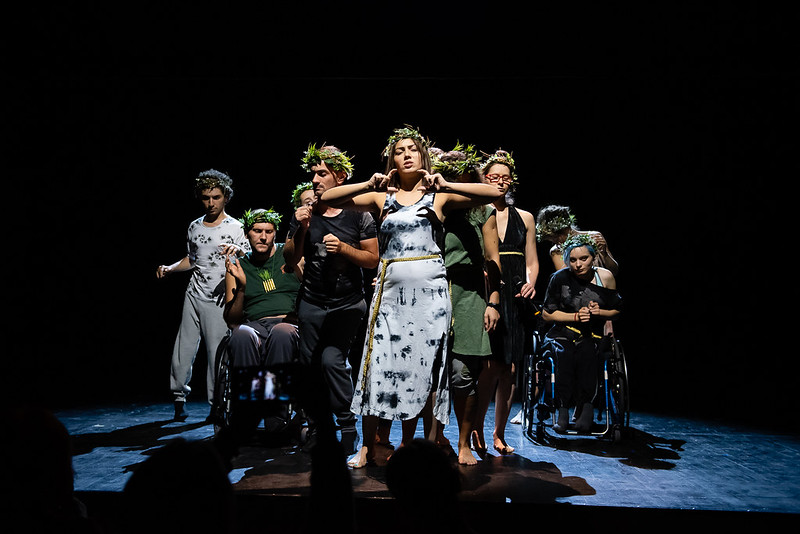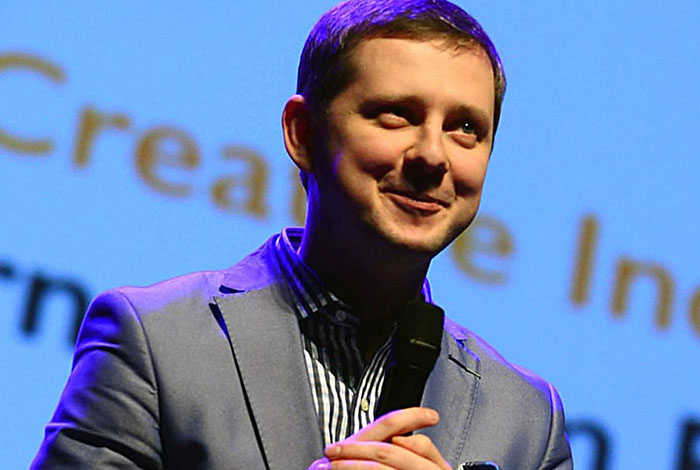
Culture Bridges: How To Get A Grant To Fund Your Project?
Anna Karnaukh: The British Council in Ukraine currently implements a multidisciplinary arts programme. Within its framework we are delivering cultural projects in eight sectors together with our partner organisations. Apart from these projects, we have always received personal requests for clarifications from artists, designers, producers and other representatives of creative sector, such as: "I need to attend this festival, where my film will be screened", or "It's quite vital for me to get this residence", or " I'd like to get into the Saint Martins School internship programme", etc. Unfortunately, we had to turn down all those people before, as we operated in line with a set procedure that was quite different. However, with the launch of the Culture Bridges now we are able to support individual applications from Ukraine and Europe, offering them international mobility grants. And, finally, as a next possible phase there will come the funding for national and international cooperation.
What is an international mobility grant?
Iryna Prokofieva: These are 2250-4000€ grants for individual short-term overseas visits. In our case, they work both ways from Ukraine to EU countries and vice versa. We offer absolute freedom in choosing the purpose of these visits, be it the search for partners, discussions on potential projects, building up new working relations or, for example, going through an internship or residence programme, participation in a conference or educational course. Applications are accepted from representatives of creative sector, public servants and employees from private cultural institutions, civil society organisations, etc. The main precondition is the applicant's conviction that the planned trip will have a sustainable and long-term impact on his/her professional development.
Anna: One more "freedom" aspect of Culture Bridges is that it is not obligatory for an applicant to represent any organisation, i.e. they should not necessarily be part of something bigger. It is possible to individually apply for mobility grants and if you do it individually, by no means it does not lesser your chances for winning.
Iryna: On the other hand, organisations can also apply. With this, a trip option for a team member can be recommended. Or, on the contrary, if a Ukrainian organisation wants to host a European expert, they could make arrangements with the expert and file an application for his/her visit. The same rule applies to European organisations: they can apply for a grant to fund a visit of a Ukrainian counterpart or for a trip for their colleague to travel to Ukraine.
Is Сulture Bridges a local programme? What are its goals?
Anna: Yes, indeed, Сulture Bridges is a Ukrainian project that was launched in November 2017 and will last till October 2020. The EU is finding the programme as part of the Association Agreement between the EU and Ukraine with the British Council as an implementing partner along with the European Union National Institutes of Culture (EUNIC) network.
The programme aims at supporting Ukrainian cultural sector, firstly, by enabling it to engage more effectively with cultural organisations and operators in the EU (thus the idea to provide international mobility and international cooperation grants); and secondly, by assisting Ukraine through the Creative Europe programme.
Iryna: I like to say that Culture Bridges is an opportunity to give it a try before applying for Creative Europe, in case you have no practical experience applying for such grant programmes or if you still have to develop strong partnership network with European organisations. For, it's a common knowledge that as a prerequisite for Creative Europe, you cannot apply without partners.
Therefore, to get the practical understanding of the processes of getting a grant and searching for partners, one could try it out with the Culture Bridges.
Does Culture Bridges envisages any limitations, for instance, in terms of applicants' age?
Iryna: The only limitation is that the applicant should not be under 18. Firstly, because we are discussing a possibility of getting individual funding. Secondly, underage candidates might need to be accompanied, – and we do not cover such options. However, escort service within a grant can be applied for a disabled candidate – we do have a separate budget line to this end.
Culture Bridges already had two calls for proposals. Could you please tell a bit more about the most represented creative sectors seen in the applications received?
Iryna: With mobility grants, these are visual arts, festivals and creative industries. National cooperation grants were mostly popular with visual arts, material and non-material heritage sector, as well as creative industries. As for the international cooperation grants, over here the leading roles were played by festival initiatives, projects in material and non-material heritage fields, visual arts and music.
Which sector representatives did you see no sign of among the applicants, but are looking forward to see in the next round?
Anna: Visual arts and museum representatives are quite active in such programmes: they already know where to find such grant opportunities, know how to apply and do realise their positive chances for winning the call. At the same time, representatives from such sectors like, let's say, fashion, design and architecture are predominantly focused on product creation, plus more than often it's a commercial product. They are less keen on looking for grant opportunities and count more on themselves. Nevertheless, we are looking forward to these applicants! Videogame developers, designers and architects – do apply!
Iryna: Over here the only limitation for them is that the project must not be purely commercial in its nature, but rather of educational or preparative nature with the possibility in the future to be useful for some commercial initiatives.
Anna: I believe an internship grant is an ideal format for these applicants. Nothing can compare with a whole month spent productively in one of the sector leading companies. Everything you need is to think proactively and do as much as possible to search for an organisation that will be ready to have you.

What is the calls time schedule within the Culture Bridges? When is the next deadline?
Iryna: Mobility calls are run once every three months, while the other two calls are organised on a semiannual basis. This May will see all three calls launched together. There will be only mobility call in August. You can find all this information at —http://culturebridges.eu/key-dates_en.
How do you communicate with potential applicants? Can an applicant get a consultation?
Anna: For the sake of practicality and ensuring a level playing field for all, we do not provide individual consultations. However, we do accept requests for information sent to the programme e-mail address. We answer those, if they are about technical criteria within the application process. Though, if they have to do with evaluation of a project content, our policy prohibits to consult those on an individual basis. For if we cannot consult everybody, then we consult nobody. This is only fair. Our sector has to develop and it is high time to switch to the understanding that everything should be done on a transparent and competitive basis. So much more important is the project idea and its results, that you are striving to achieve. As, to prepare a successful application you definitely wouldn't require some superpowers. If your application didn't win this time, it's no good reason to hold grudges and to despair. It simply means that you have to double your efforts and definitely apply for the next call.
Iryna: Moreover, we have created a super easy-to-navigate programme website (http://culturebridges.eu/) with comprehensive information to answer the most freaquintly asked questions, with timely notification mechanisms to remind you about call deadlines and providing general recommendations on our Facebook-page (https://www.facebook.com/culturebridges.ua/). We also held a webinar and a number of targeted programme presentations in a couple of cities. With this, we do not plan to stop. We've seen the demand in such events in the regions, that is why we are also considering a possibility of organising off line Culture Bridges meetings throughout Ukraine.
Culture Bridges is not merely a grant programme, is it? Tell us more about the upcoming educational and special events.
Iryna: Presently we are running training sessions on proposal writing for Creative Europe. This initiative covers simultaneously 5 cities in Ukraine: Kyiv, Chernihiv, Kharkiv, Zaporizhya and Dnipro. This autumn we will see even more training events for cultural managers, as well as the first study visits to the EU.
Anna: Additionally, we plan to have a series of special projects in partnership with the European Union National Institutes of Culture network. The first project to be launched will have to do with professional literature, and will take place during the Kyiv Arsenal. You are very welcome to participate: http://culturebridges.eu/booking_the_future_en
Find more about Culture Bridges programme at http://culturebridges.eu/en
The launch of the 3rd call (all types of grants): 14 May 2018
Read more:




